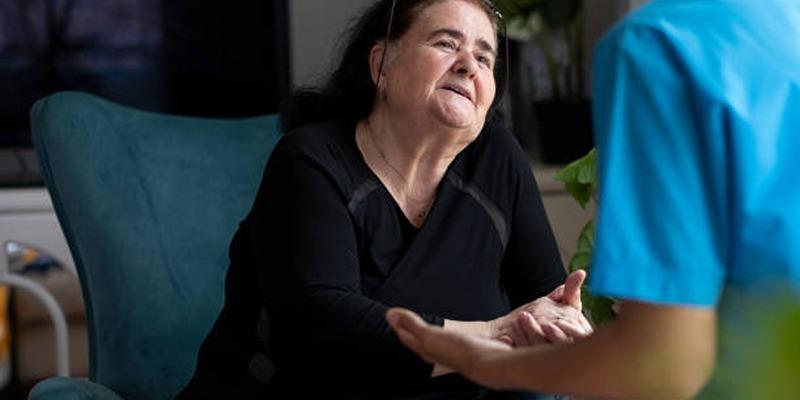Parkinson disease is a condition that is slow in development and impacts the body and brain movement. The knowledge of its stages may be used to cope with the journey. Although it might seem this is devastating, proper support and planning can ensure that living with Parkinson is not brutal. This blog will cover every step, expectations and tips of coping with the changes.
What Is Parkinson's Disease?

Parkinson is a disease that impacts the nervous system. It primarily affects movement, and things such as walking, writing or even speaking can be harder. This is due to the fact that brain cells producing the chemical responsible for controlling movement, which is the dopamine, weaken gradually and die. With a decrease in dopamine, the body loses coordination in movements. What Is Parkinson’s Disease?
The Five Stages of Parkinson’s Disease
The Hoehn and Yahr scale is commonly used by physicians in characterizing the five stages of Parkinsonism. Every step displays how the condition can develop with time.
Stage 1: Mild Symptoms
Initial symptoms are extremely mild and even overlooked. Some of the slight changes that a person may observe include:
- A small tremor in one hand
- Subtle changes in posture or facial expressions
- Mild stiffness in movement
At this age, the individual is still able to perform daily tasks independently. Unless they take a closer look, friends and family will not realize the signs.
Coping Tips for Stage 1
- Begin gentle exercise like walking or stretching to maintain flexibility.
- Track symptoms and share them with your doctor.
- Learn about Parkinson’s, so you are prepared for future changes.
Stage 2: Symptoms Become Noticeable
During the second stage, the symptoms will be more evident and might be bilateral. Common signs include:
- Tremors in both hands or arms
- Muscle stiffness that makes movement slower
- Trouble with balance and coordination
Despite the possibility of daily activities, tasks can be more time-consuming than before.
Coping Tips for Stage 2
- Establish a daily regimen to control energy.
- Physical therapy should be used to enhance movement.
- Disclose share changes to loved ones to allow them to help and comprehend you.
Stage 3: Increased Impact on Daily Life
At the third stage, the symptoms are more severe, and they start to interfere with independence. This stage often includes:
- Frequent balance issues
- Difficulty walking without support
- Slower movements that affect dressing, eating, or working
Coping Tips for Stage 3
- A disability prop is used to avoid falls such as canes or walkers.
- Break tasks into smaller steps.
- Look at home modifications like railing.
- Find a support group to give encouragement.
Stage 4: Loss of Independence
The stage four is a highly restrictive stage. An individual might require assistance with the majority of the day-to-day tasks like bathing, cooking and locomotion. With a walker, walking can still be done but with much loss of independence.
Coping Tips for Stage 4
- Accept help from caregivers or family members.
- Use assistive devices for safety.
- Keep attention on the things that are relaxing and enjoyable, though movement may be restricted.
Stage 5: Advanced Stage
It is the latest stage of Parkinson disease. Individuals are frequently not able to leave the wheelchair or confined to the bed. They need assistance in everyday activity. Thinking and memory problems can arise in certain cases.
Coping Tips for Stage 5
- Full time care might be required.
- Focus on comfort, safety, and emotional support.
- Maintain contact with family and loved ones so as not to be isolated.
How to Cope With Parkinson’s Disease at Any Stage

The experience of having Parkinson can be a challenge but can be made easier each stage by stage. Through paying attention to physical, emotional and social well-being, people would be able to have good quality of life. Providing a sense of empowerment by understanding the disease and modifying as the symptoms evolve may empower individuals and their loved ones.
Stay Active With Exercise
Regular exercises are highly beneficial in the case of Parkinson patients. It keeps the body in good, flexible and mobile position, brakes rigidity and improves balance and coordination. Especially useful are the movements of walking, yoga, tai chi, swimming or bicycles. Even light stretching or dancing can help to improve mobility and mood. Endorphins are also released in the course of the exercise and also beneficial in depression and anxiety that comes hand in hand with Parkinson.
Eat a Balanced Diet
Healthy eating helps towards energy, brain power, and health. Fruits, vegetables and whole grains are capable of managing the symptoms. Foods that include antioxidant, high-fiber, and omega-3 can be very beneficial. One needs to keep hydrated as dehydration may further increase fatigue and stiffness. One may also recruit a dietitian to come up with a personal nutrition plan.
Stay Socially Connected
Parkinson can become more difficult because of isolation. The social relations contribute to emotional well-being and lessen loneliness. A visit to friends, family or a support group of people, whether face to face or via the internet, can be a huge change. The conversation with other people who have undergone the same experience might be reassuring and offer useful tips.
Manage Stress and Mental Health
Stress has the ability to increase the symptoms of Parkinson and thus it is worth taking care of it. Such methods of relaxation as deep breathing, meditation, or mindfulness can assist. Stress is also minimized with a relaxing day-to-day routine. In case the anxiety or depression becomes overwhelming, it can be highly helpful to turn to the assistance of a counselor or therapist. The secret of dealing with Parkinson is mental health.
Work Closely With Doctors
It is necessary to check-up with doctors on a regular basis. Physicians can track the symptoms, modify the therapies, and propose new treatments. Share with the counselor, the way you are feeling and what you are worrying about. Communication gives you optimal care to your needs.
Supporting a Loved One With Parkinson’s
It may be difficult and rewarding when raising a person with Parkinson. The role of caregivers is critical in the management of symptoms, the sustenance of independence, and enjoyment of life on the daily basis.
Be Patient and Understanding
Parkinson can make things more difficult and slow down the movements. Be patient and supportive and not in a hurry or frustrated. Appreciate little achievements and be empathetic- it really matters.
Offer Practical Help
Parkinson can complicate some activities. Assistance in meals, transport or housework to lessen the load. Even minor things such as sorting out the medicines or scheduling appointments come in handy. Never give and take without asking to show that you are interested in helping.
Encourage Independence
Although being helpful is second nature, you should ensure that your loved one is allowed to be as independent as he/she can. Although this may prolong the tasks, allowing them to do things builds confidence and dignity. Provide assistance where necessary, but do not do it on your behalf.
Conclusion
Parkinson’s is a challenging disease to live with, but knowing more about the disease will help navigate it. People may also have a purpose, joy and connection with the right care and support. With an emphasis on the physical health, mental state, and social interaction, individuals with Parkinson and their families may establish a meaningful life together.












